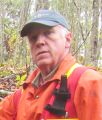ATTEND & BE INSPIRED: Nanaimo Water Symposium – Collaboration Success Stories on Vancouver Island (April 11-12)

“Changes in the global climate are accelerating and disrupting the water cycle. Local consequences, ofttimes negative, are magnified. To make the right decisions, we need to understand how and where the water rhythms are changing. We must adjust our land use and infrastructure practices before its too late,” states John Finnie, Chair of the Nanaimo Symposium Organizing Committee. “Attend the symposium on April 11-12, 2018. Listen. Hear. Be heard. And make a difference.”
SAVE THE DATE TO BE INSPIRED – The Hard Work of Hope – Collaboration Success Stories on Vancouver Island (April 11-12, 2018)

Join us in Nanaimo for a field trip, public lecture and symposium on watershed stewardship, the water balance and restorative development. “What we are essentially talking about is reconciliation: going back to the headwaters of where we got our relationships with water and with one another wrong so that we can start back down the river of time – this time together – with a full understanding of the importance of embracing a water-first approach to planning human interventions in the environment,” states Bob Sandford.
Debra Oakman: Her support helped to lay the foundation for successfully launching the Georgia Basin Inter-Regional Education Initiative in 2012

Debra Oakman retired as Chief Administrative Officer of the Comox Valley Regional District in mid-2017. In October 2017, the Partnership for Water Sustainability in BC honoured her with a Lifetime Membership. The early and strong support of Debra Oakman for demonstrating the benefits of the ‘regional team approach’ in the Comox Valley was a key to the success of the Partnership’s CAVI-Convening for Action on Vancouver Island initiative.
Englishman River Watershed Recovery Plan: Connecting people to their landscape, the Mid Vancouver Island Habitat Enhancement Society is a voice for the community

“MVIHES experience demonstrates that positive outcomes are a result of strong community support for protection of small streams and their tributaries,” stated the late Faye Smith (1937-2017). The “Shelly Creek Water Balance & Erosion Reduction Plan” is dedicated to her memory. Faye Smith was the backbone of stream stewardship in the Oceanside area for 30 years.
“By sharing the story of Shelly Creek, we want readers to recognize that erosion is a common issue impacting salmon and trout habitats in small streams, draining into the Salish Sea,” stated Peter Law, Vice-President of the Mid Vancouver Habitat Enhancement Society

“Over time, MVIHES has morphed into Stewards of the Watershed. Beginning in 2011, the MVIHES action plan has concentrated on Shelly Creek. One of five Englishman River tributaries, it is the last fish-bearing creek flowing through the City of Parksville,” stated Peter Law. “It will require a bottom-up approach to inform, educate and inspire City and Regional District governments to implement 21st century policies for rainwater and development.”
“MVIHES has established a provincial precedent with the Shelly Creek Water Balance & Sediment Reduction Plan; and this will have reverberations as the 'Shelly Creek story' becomes well-known," wrote Kim Stephens in the preface to "Shelly Creek is Parksville's last fish-bearing stream!" (October 2017)

“Community stewardship volunteers are demonstrating what it means to embrace ‘shared responsibility’ and take the initiative to lead by example,” stated Kim Stephens. “The Shelly Creek experience foreshadows that an informed stream stewardship sector may prove to be a difference-maker that instigates and accelerates implementation of the ‘whole-system, water balance’ approach in the Georgia Basin region and beyond.”
Released in July 2017, the "Shelly Creek Water Balance & Erosion Reduction Plan" has three desired outcomes: Restore Watershed Hydrology, Prevent Stream Erosion, Ensure Salmon Survival

“Issue #1 is widespread lack of understanding of the relationship between flow-duration and stream (watershed) health,” stated Jim Dumont. The flow of water from cloud to stream is comprised of three water balance pathways. Standard drainage engineering practice only considers surface runoff. The other two pathways (interflow and groundwater) by which rainfall reaches streams are ignored.
VIDEO: "Thinking Like a Watershed: Eco-Assets Explained" – perspectives by Bob Sandford, Emanuel Machado, Kim Stephens and Michelle Molnar together capture the essence of the Comox Valley Eco-Asset Symposium

“An ecological approach provides a community with the ability to provide services to people at a reduced cost, with a reduced risk, and with tremendous benefits to the environment,” stated Emanuel Machado. “The challenges we have are three-fold: nature itself is under-valued, under-priced and over-used. Our built infrastructure is decaying at a faster pace that we can afford to replace it. And nature itself knows no boundaries, but we have no ability to plan at a watershed scale.”
GEORGIA BASIN INTER-REGIONAL EDUCATION INITIATIVE: "Deployment of Water Balance family of online tools would help local governments bring state-of-the-art-hydrology into engineering standard practice," wrote Kim Stephens, in an article for Asset Management BC

“The paradigm-shift is that watersheds are managed as ‘infrastructure assets’ that provide ‘water balance services’,” states Kim Stephens. The driver for using the Water Balance family of tools is this desired outcome: restore watershed hydrology and re-set the ecological baseline.” Adopted by the Province in 2002, the Water Balance Methodology is the hydrology foundation for development of tools for different users at different scales and purposes.
Mike Donnelly – A Champion for Water & Watershed Sustainability in the Nanaimo Region

“The Regional District of Nanaimo’s water sustainability goals have meshed very well with those of the Partnership for Water Sustainability over the many years we have worked together. The working relationship enhances the ability of both organizations to reach their common goals in water sustainability while supporting each other. A highlight of that relationship was being part of the Inter Regional Education Initiative,” stated Mike Donnelly.

